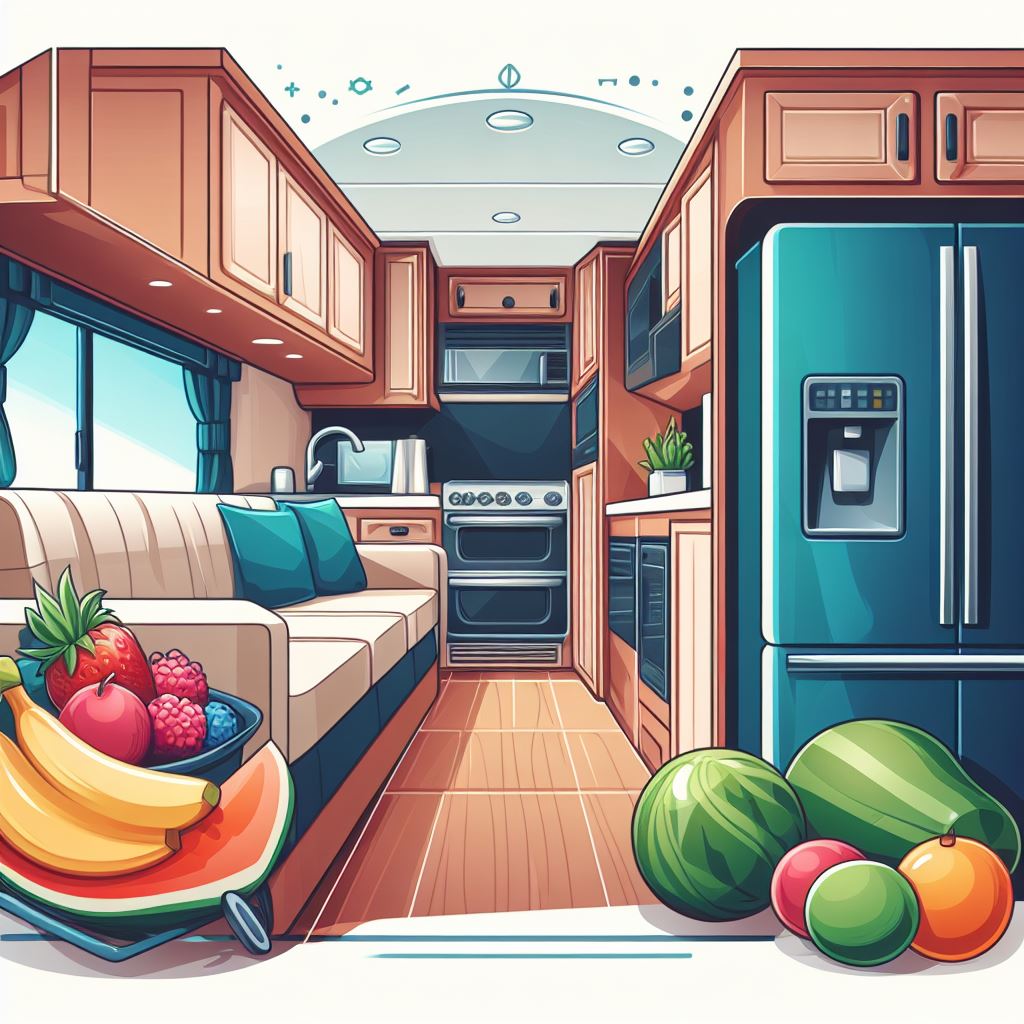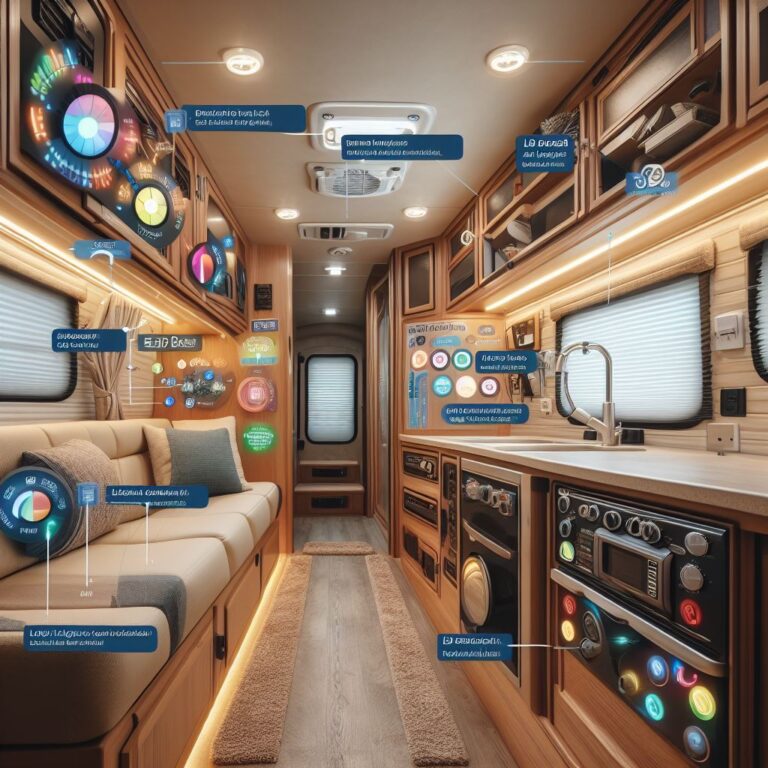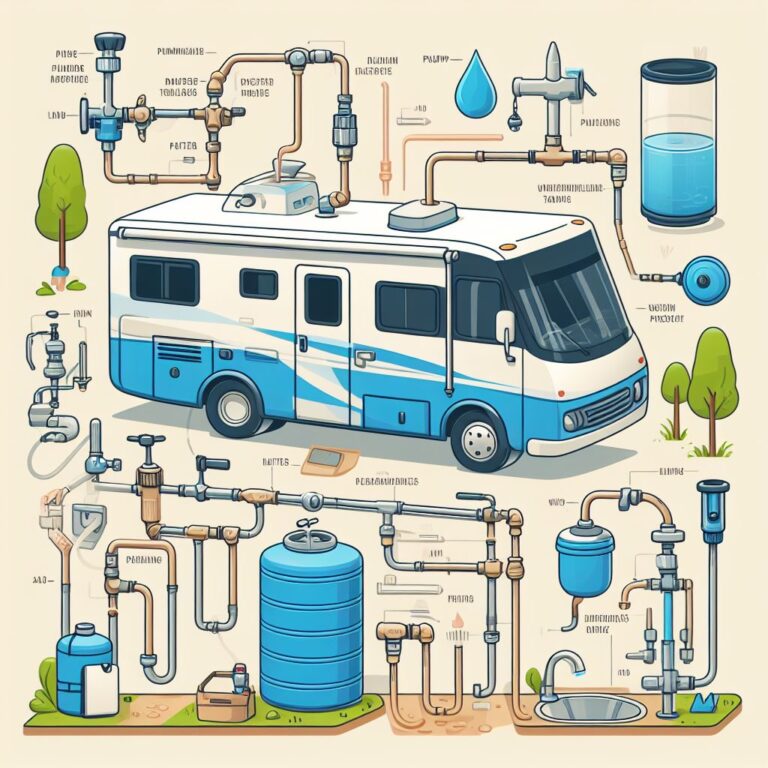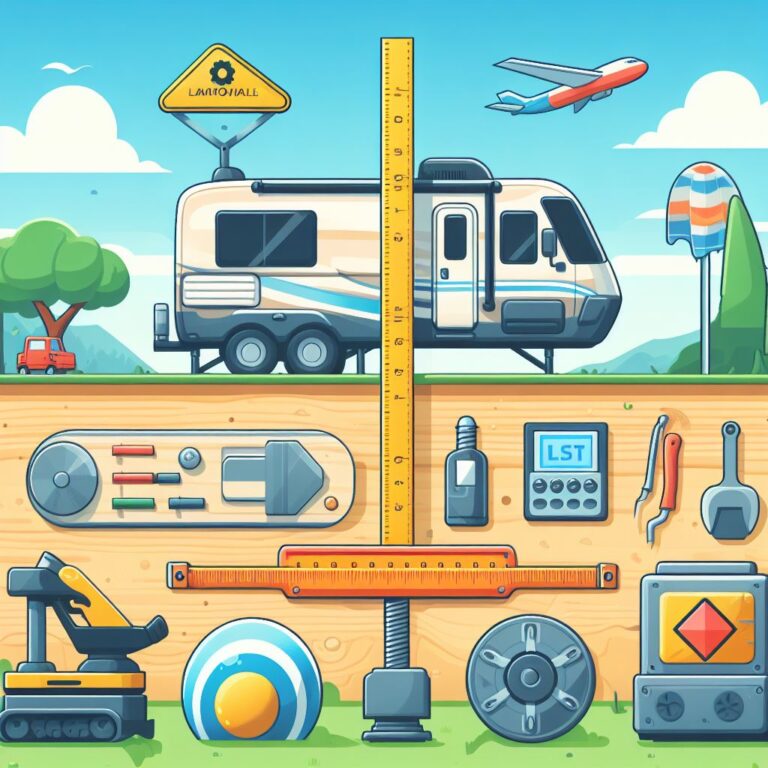How To Choose RV Furnishings & Appliances
Understanding RV Furnishing and Appliance Requirements
Embarking on an RV journey signifies embracing a unique lifestyle that combines the merits of homely comfort with the thrill of exploration. Paramount to this comfort is equipping your mobile abode with the right furnishings and appliances. This preliminary stage involves critical planning and understanding the requirements of the RV furnishings and appliances, which bear substantial influence on your travel experience.
The choice of furniture and appliances for an RV isn’t merely about aesthetic appeal or convenience. The weight, size, resilience, and power consumption of these items play crucial roles. The interior layout, available power supply, weight capacity, and personal needs must be carefully considered. This meticulous scrutiny ensures the RV remains balanced during movement, resource consumption is efficient, commonly used amenities are readily available, and the overall living experience within the confines of the RV is as pleasant and comfortable as possible.
Deciding on the Right Size and Space for RV Furnishings
RV furnishing can significantly change the overall look and feel of your recreational vehicle. However, choosing the right size and space for the furniture is an important factor that often gets overlooked. It’s not just about aesthetics or comfort but plays a crucial role in the overall functionality of the RV. Wrong size furnishings can either cramp the space or leave it looking empty and bare. Therefore, understanding the dimensions, layout and available space in your RV is the first step to making wise decisions.
Moreover, it is essential to remember that RVs are fundamentally different from stationary homes and require more thoughtful space utilization. It’s not just about buying small pieces of furniture, but rather, finding pieces that are proportional to the RV’s existing layout. Complementing the space with appropriately sized furniture does not restrict movement and ensures easy access to all areas. Properly scaled furniture pieces also leave room for necessary appliances and storage options, helping you to maintain a balanced and functional living space.
Selecting Durable and Functional RV Furniture
Choosing the right furniture for your recreational vehicle (RV) goes beyond aesthetics. The primary considerations should be functionality and durability. RV furnishings face unique conditions such as sudden brakes, twists, turns and constant vibrations which normal household furniture isn’t designed to handle. Therefore, one must pick sturdy furniture built from robust materials that can withstand these conditions.
Resourcefulness is yet another factor to consider: dual-purpose or multi-purpose furniture can make optimal use of the limited space in RVs. Fold-up desks, convertible sofas, and tables with storage compartments all constitute smart design solutions. Before purchasing, think carefully about how furniture will be used inside your RV. From there, prioritize the most necessary pieces while also considering their sturdiness, usefulness, and adaptability to life on the move.
Importance of Comfort in Choosing RV Furnishings
When it comes to long drives or expansive road trips, comfort is an aspect that cannot be ignored in an RV. The journey becomes more enjoyable when furnishings offer pleasant seating or sleeping options. In an enclosed space, the furnishings need to tick off comfort as a primary feature. Not just for the driver, but for all occupants, the physical ease determines how much they enjoy or endure the journey.
While looking for RV furnishings, one tends to focus on durability and space optimization. However, without a comfortable element, the most durable or optimized furniture can still fall short. For instance, a couch that converts into a bed provides great utility but if its seating comfort is compromised, then its functionality becomes moot. So, it’s crucial to consider the comfort provided by each piece of furniture before finalizing it for the RV.
Optimizing RV Layout with Suitable Appliances
Selecting suitable appliances for your RV is crucial in optimizing its layout. The process requires a keen eye for space utilization, an understanding of RV systems, and careful planning. Making the most out of every square-inch of your RV space, demands strategic placement and considered execution. One primary consideration is the function of the appliance versus the space it demands, ensuring that it serves an important purpose and brings value to your RV living experience, rather than overcrowding the available room.
In the realm of RV-living, the size of appliances significantly contributes to overall comfort and ease-of-use. Appliances should be compact enough to save space, yet functional to cater to your needs. For example, opting for a two-burner stove instead of four or selecting narrower refrigeration units or compact dishwashers are good choices. Wise selection and placement help to create a space-efficient and user-friendly RV layout, leading to a more convenient, enjoyable, and comfortable RV lifestyle.
Determining Power Consumption of RV Appliances
Analyzing the power usage of RV appliances is essential, especially for those planning long trips. This allows for effective management of the available power, preventing instances of battery drain that could potentially disrupt the journey. Typically, recreational vehicle appliances such as air conditioners, heaters, refrigerators, and ovens have their power consumption listed in their specifications. The listed wattage signifies the power consumed per hour of use, enabling RV owners to calculate their potential overall power usage.
Solar panels and generators often serve as power sources in an RV, and understanding their capacity is important in planning energy use. Just as an example, a refrigerator may use 1500 watts per day, which means you would require a reliable power source that can comfortably supply this wattage. In addition to the primary appliances, it is also important to take into account the power requirements of smaller items like charging points, lights and fans. These may seem negligible, but they can significantly add up over time, especially in scenarios where you are off the grid for extended periods.
Energy-Efficient Appliances for Your RV
Whether you’re embarking on an epic road trip or embracing living full-time in your recreational vehicle, choosing energy-efficient appliances is a must. These appliances can significantly reduce the amount of electricity your RV uses, potentially lowering the strain on your RV’s electrical system and any portable generators. Furthermore, being efficient with power means you can stay off-grid longer, advancing your RV’s self-sufficiency and minimizing your carbon footprint.
Investing in energy-efficient appliances for your RV mainly involves appliances such as the refrigerator, air conditioning system, microwave, and even smaller appliances like a coffee maker or slow cooker. For instance, opting for a multi-functional and energy-saving appliance like a convection microwave, which can both cook and heat food, can be a wise decision. Similarly, selecting a refrigerator designed specifically for the RV’s compact space and reduced power availability is crucial. Remember that each appliance that consumes less power leaves room for other luxuries or necessities your RV might need.
Ensuring Compatibility of Appliances with RV Systems
Before installing any appliances in your recreational vehicle (RV), it is crucial to ensure that they are compatible with the RV systems. An appliance’s compatibility is determined by specifications such as power requirements, sizing, and weight, which must align with the RV’s capacity. Incompatible appliances could strain the RV’s energy resources, cause structural damage due to excess weight or improper sizing, or even create safety hazards.
When selecting appliances, consider the RV’s electrical and plumbing systems foremost. The appliance should match the RV’s electrical voltage to avoid overload that could lead to electrical fires. Besides, the plumbing connections should be suitable to allow the proper functioning of kitchen and bathroom appliances. Moreover, the installation of any appliance should not disrupt the balance of weight within the RV, as it could impact stability. A holistic approach to choosing appliances, assessing each potential purchase against the RV’s limitations and allowances, will result in a harmonious, functional, and safe living space.
Maintenance Considerations for RV Furnishings and Appliances
Maintaining the top-notch performance of your RV furnishings and appliances requires regular checkups and preventive measures. These items, pivotal for comfort and convenience during your travels, can see wear and tear over time due to constant use and exposure to different weather conditions. The materials used in furniture like sofas, recliners, and bedding could deteriorate if not properly cared for, compromising their durability and function. Additionally, appliances like refrigerators, ovens, and air conditioners require routine inspection to ensure they continue to function efficiently.
Owners must become familiar with cleaning practices appropriate for different materials, whether it be wood, metal, or fabric to prevent damage during maintenance. Stainless steel appliances, for instance, often need special cleaning solutions to avoid abrasion and preserve their sleek appearance. For appliances, understanding their functionality can help troubleshoot before any minor issues become major. Keep instruction manuals handy and don’t hesitate to consult with professionals if needed to ensure that your RV remains a welcoming and relaxing space throughout your travels.
Making the Final Decision: Budgeting for Your RV Furnishings and Appliances
Budgeting for RV furnishings and appliances can certainly feel like a daunting task, especially when you’re a first-time RV owner with a plethora of choices to consider. All of your decisions must take into account a careful balancing act. On one side you have the physical constraints of your RV – its size, layout, and weight carrying capacity. On the other, your personal needs and comfort, the durability and functionality of your furniture, the power consumption and efficiency of your appliances, and of course, their cost.
It’s vital to understand that investing in high-quality furnishings and appliances can save you a significant amount of time, money, and stress in the long run. This doesn’t mean you should rush out and buy the most expensive items on the market. Rather, you should take the time to research and evaluate each item against your specific requirements, as well as its compatibility with your RV’s systems. As a rule of thumb, prioritize those items that are necessary for your safety and convenience. Saving a few dollars by cutting corners could end up costing you more in maintenance and replacements.
What factors should I consider when deciding on furnishing and appliance requirements for my RV?
You should consider the size, durability, functionality, and comfort of the furnishings. For appliances, consider their power consumption, energy efficiency, and compatibility with the RV’s systems.
How do I decide on the right size and space for my RV furnishings?
Your decision should be based on the size and layout of your RV. Measure the space available and choose furnishings that will fit comfortably without overcrowding the area.
Why is it important to select durable and functional RV furniture?
Durable and functional furniture can withstand the rigors of travel and provide you with the necessary comforts for your journey. They also tend to last longer, giving you value for your money.
How important is comfort in choosing RV furnishings?
Comfort is extremely important in choosing RV furnishings. Since you’ll be spending a lot of time in your RV, you want to ensure that the furnishings are comfortable for both relaxation and sleep.
How can I optimize my RV layout with suitable appliances?
You can optimize your RV layout by choosing appliances that fit well in the available space and serve multiple purposes if possible. This way, you maximize functionality without sacrificing space.
How do I determine the power consumption of RV appliances?
You can determine the power consumption of RV appliances by checking the manufacturer’s specifications or labels on the appliances. This information is usually stated in watts.
What are the benefits of having energy-efficient appliances in my RV?
Energy-efficient appliances consume less power, which can significantly reduce your energy costs. They also put less strain on your RV’s electrical system.
How do I ensure that my appliances are compatible with my RV systems?
To ensure compatibility, check the voltage and amperage requirements of the appliance and compare it to your RV’s electrical system. When in doubt, consult with an RV professional or the appliance manufacturer.
What should I consider in terms of maintenance for my RV furnishings and appliances?
Consider the durability and ease of cleaning for furnishings. For appliances, consider their longevity, efficiency, and the availability of spare parts.
How do I budget for my RV furnishings and appliances?
Start by noting down all the furnishings and appliances you need. Then, research their costs and compare different brands and models. Keep in mind your financial limits and prioritize based on necessity and functionality. Be sure to also factor in potential maintenance costs.
- How To Choose TIPHOPE RV Accessories - February 10, 2024
- How To Choose Joinfworld RV Accessories - February 10, 2024
- How To Choose Conntek RV Accessories - February 9, 2024







